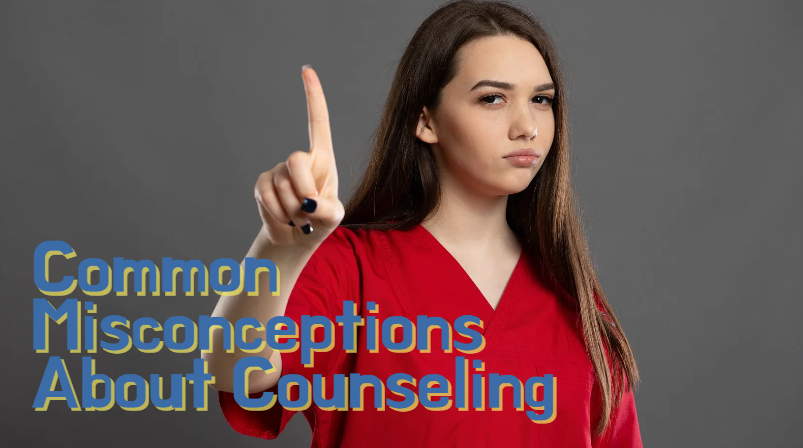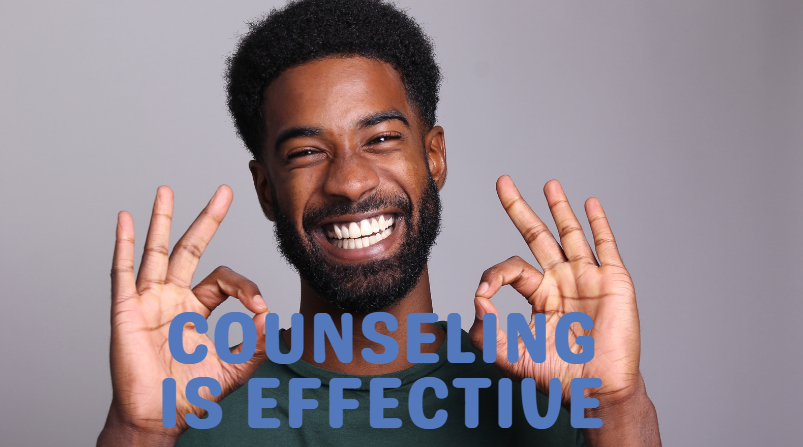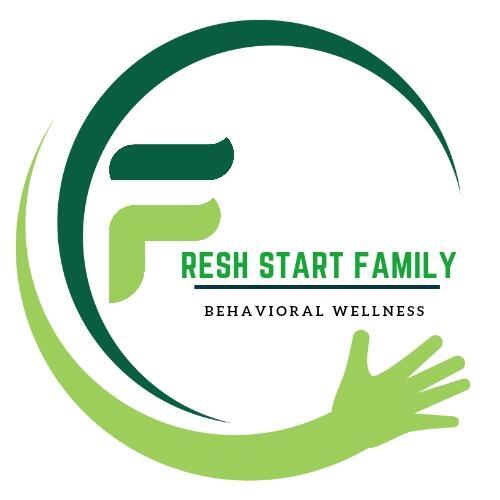Mental health struggles are more common than you think, and seeking counseling might just be the first step towards feeling like yourself again. At its core, counseling is a supportive relationship between a trained professional and someone facing emotional or psychological challenges. It helps individuals explore their feelings, gain clarity, and develop coping strategies for life’s hurdles. But what is counseling, and how does it work? Simply put, counseling provides a safe space for self-reflection and healing. Whether you’re dealing with stress, anxiety, or past trauma, a counselor guides you through the process of understanding and managing these emotions.
In today’s world, mental health care is essential, and counseling plays a key role in supporting individuals on their journey to well-being. It’s not just for those in crisis—it’s a proactive way to maintain mental health and achieve a balanced life.
What is Counseling? A Deeper Look
Counseling is a professional relationship designed to help individuals manage emotional and psychological challenges. Through open conversation and guidance, counselors help clients explore their feelings, set goals, and develop effective coping strategies for life’s difficulties.
There are various types of counseling, each tailored to meet specific needs. These include:
- Individual Counseling: One-on-one sessions focused on personal issues or mental health concerns.
- Couples Counseling: Helps partners address relationship struggles, improve communication, and strengthen bonds.
- Group Therapy: Offers a supportive environment where people with similar issues can share experiences and learn from each other.
- Family Counseling: Aimed at resolving conflicts and improving dynamics within a family unit.
- Career Counseling: Helps individuals identify their career goals and guides them in achieving them.
- School Counseling: Supports students in their academic, social, and emotional development.
- Substance Abuse Counseling: Focuses on helping individuals overcome addiction and develop healthier coping mechanisms.
Counseling can address a wide range of emotional and mental health challenges. Common issues include:
- Overcoming persistent worry and fear.
- Addressing feelings of sadness, hopelessness, and lack of motivation.
- Learning to manage and reduce stress in daily life.
- Improving communication and resolving conflicts in personal relationships.
- Coping with the loss of a loved one or a major life change.
- Healing from past emotional or physical trauma.
Why Do People Seek Counseling?

People seek counseling for a variety of reasons, from overcoming life’s challenges to managing mental health conditions. It’s a valuable resource for anyone wanting to better understand their emotions, build coping strategies, and improve their overall mental well-being.
1. Mental Health Awareness
As awareness around mental health grows, society is starting to break the stigma surrounding therapy. More people realize that seeking counseling is not a sign of weakness but a courageous step toward healing and self-improvement.
2. Everyday Life Challenges
Life’s challenges often push us to our limits, and counseling helps us navigate these tough times. Common issues include:
- Grief: Coping with the loss of a loved one.
- Trauma: Addressing the emotional wounds from past events.
- Work Stress: Managing the pressures and demands of a job.
- Family Issues: Resolving conflicts or improving communication within the family.
3. Specific Conditions
Counseling is also essential for those struggling with specific mental health conditions. These can include:
- Anxiety: Managing overwhelming worry or panic.
- Depression: Addressing persistent sadness and feelings of hopelessness.
- Addiction: Overcoming substance abuse or other addictive behaviors.
- Eating Disorders: Dealing with unhealthy relationships to food.
- PTSD: Healing from past trauma or distressing memories.
How Counseling Helps People Process Feelings
Through counseling, individuals are empowered to process their feelings, gain new perspectives on their struggles, and develop practical coping strategies that promote emotional healing and resilience. It’s a process of growth that brings lasting positive change.
The Counseling Process: What to Expect

Starting counseling can feel intimidating, but knowing what to expect can help ease any nerves. The process is designed to be a safe, supportive space to explore your thoughts, emotions, and concerns. Let’s walk through the typical journey of therapy.
1. Initial Consultation
Your first session is about getting to know each other. The counselor will ask questions about your background, what brought you to therapy, and any goals or concerns you have. This is your chance to build rapport and begin laying the foundation for your counseling journey.
2. Ongoing Sessions
As you continue sessions, the focus shifts to setting concrete goals and tracking progress. Building trust is key, and over time, you’ll work together to explore deeper emotions, behaviors, and thought patterns. Your counselor will guide you through challenges and celebrate your achievements.
3. Exploring Emotions and Thought Patterns
Counselors use techniques like Cognitive Behavioral Therapy (CBT) or mindfulness to help you identify negative thought patterns and emotions. These methods allow you to gain new perspectives on your issues, learn healthier coping strategies, and ultimately shift how you respond to life’s challenges.
4. Duration
The number of sessions you’ll need depends on your unique situation and goals. Some people see a counselor for just a few weeks, while others may engage in therapy for several months or longer. Your counselor will work with you to determine what’s best for your needs.
5. Confidentiality
Confidentiality is a cornerstone of counseling. Everything you share remains private, ensuring a safe environment to explore sensitive topics. Counselors follow strict ethical guidelines to protect privacy and maintain trust throughout the therapeutic relationship.
6. Personal Growth
Counseling isn’t just about resolving problems—it’s also about personal growth. It provides an opportunity for self-reflection, helping you understand yourself better and develop healthier coping strategies. Over time, therapy encourages emotional healing, boosts self-awareness, and empowers you to live a more fulfilling life.
How to Find a Counselor: Your Guide to Getting Started

Finding the right counselor can feel like a big step, but it’s important for your mental well-being. With the right support, you can begin your journey to healing and personal growth. Here’s a simple guide to help you get started.
1. Understanding Your Needs
Before searching for a counselor, think about what you need. Are you dealing with something specific, like anxiety or trauma, or are you looking for support with general well-being? Understanding your goals helps you find a counselor who specializes in what you’re facing, ensuring a more tailored and effective experience. Consider the characteristics you prefer in a counselor, like gender, age, or specialization.
2. Types of Counselors
Learn about various counseling professions, including clinical psychologists, licensed professional counselors, social workers, and marriage and family therapists. Understand the differences in their training, areas of expertise, and approaches to therapy.
- Therapist: Typically, an umbrella term for licensed professionals who provide talk therapy to help with emotional or psychological issues.
- Psychologist: A professional trained to diagnose and treat mental health conditions, often through talk therapy, and may provide psychological testing.
- Psychiatrist: A medical doctor who can prescribe medication and often focuses on severe mental health conditions like depression or schizophrenia.
- Counselor: A licensed professional who helps with everyday life issues, coping strategies, and mental well-being, often using short-term therapy techniques.
3. Where to Search
There are several places to find a counselor. You can explore online therapy platforms, ask your doctor for referrals, or visit mental health websites for resources. Professional directories like Psychology Today also allow you to search for licensed therapists.
4. Questions to Ask Before Choosing
When choosing a counselor, asking the right questions is important to ensure they’re the right fit. Consider asking:
- Do they specialize in the issue you’re facing?
- Are they licensed and accredited?
- What are their therapeutic approaches (e.g., CBT, talk therapy)?
5. Cost Considerations
Cost can vary based on where you live and the type of therapy you need. Many therapists accept insurance, and some offer sliding scale fees based on income. Don’t hesitate to ask about pricing upfront and explore options if cost is a concern—there are often more affordable choices than you might think.
Finding the right counselor is a crucial step in prioritizing your mental health. You can start your journey toward healing and wellness with the right approach and guidance.
Common Misconceptions About Counseling

Many myths surrounding counseling can make people hesitant to seek help. Understanding the truth behind these misconceptions can help you feel more confident about taking the first step toward therapy.
“Counseling is only for people with serious problems”
This is one of the most common misconceptions. Everyone can benefit from counseling—whether you’re facing a specific issue or simply seeking personal growth. Counseling is a space for self-exploration, emotional support, and building resilience, no matter how big or small your concerns may seem.
“Counselors will tell me what to do.”
Counseling is a collaborative process, not a one-sided conversation. A counselor doesn’t tell you what to do—they guide you to explore your thoughts, feelings, and options, helping you make informed decisions. You’re the one in control, and therapy empowers you to take charge of your healing.
“Counseling is too expensive.”
While therapy can seem costly, there are many affordable options available. Many counselors offer sliding scale fees based on income, and insurance may cover some or all costs. Online therapy platforms often offer lower rates, making counseling more accessible for people on a budget.
“Counseling is a quick fix.”
Counseling is not a quick fix—it’s a journey of healing and self-discovery. It takes time and effort to address underlying issues and make lasting changes. The process may require ongoing work, but the long-term benefits of personal growth, emotional resilience, and better coping strategies are worth the commitment.
How Effective is Counseling?

Counseling can be incredibly effective in improving mental health and overall well-being. Research shows that therapy can help reduce symptoms of anxiety, depression, and stress while also boosting self-esteem and emotional resilience. Many people experience lasting positive changes through counseling and finding healthier ways to cope with life’s challenges.
The effectiveness of counseling depends on various factors, such as the therapeutic approach used, the counselor-client relationship, and the individual’s willingness to engage in the process. While progress may take time, therapy empowers people to better understand themselves, develop coping skills, and create meaningful life changes.
Breaking the Stigma Around Counseling
Taking the first step toward counseling is a brave and empowering decision. It can be intimidating, but remember that seeking help is a sign of strength, not weakness. Reaching out for support shows a commitment to your emotional well-being and future. You deserve to live a life full of peace, growth, and emotional balance.
Counseling is not a quick fix but a long-term, empowering tool for mental well-being. At Start Behavioural Wellness, we are here to walk alongside you on your healing journey. Our team of qualified and compassionate professionals is dedicated to offering you the highest standard of care. We value confidentiality and trust to ensure your safety and comfort. Call us today at 910-436-6495 to begin your path toward a healthier, happier you.

